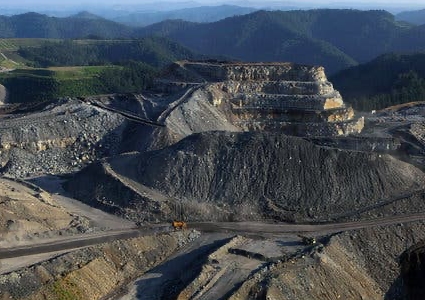Polling

Suggest an important issue not listed in this sub-category (). (Maximum 60 Characters)
Mountaintop removal mining

Mountaintop removal (MTR) mining, sometimes called strip mining, is a surface mining method which removes a mountain’s summit to expose its coal deposits beneath. Since it began in 1970, MTR mining has become the most common method of coal mining in our Appalachian region which includes West Virginia, Virginia, Kentucky and Tennessee. In this process, mountaintops are first cleared of forest, vegetation and topsoil. Powerful explosives are then used to blast as much as 800 feet off the top of a mountain. Huge mechanical shovels, called draglines, are used to dig through the layer of rock to access the coal seam. Excess rock and soil is hauled away on trucks and usually deposited into adjacent valleys. Huge amounts of chemically-treated water is then used to wash the extracted coal to prepare it for market. The resulting waste water is laden with coal dust, carcinogenic chemicals and harmful metals such as mercury and arsenic. This toxic slurry mix often migrates into the water supplies upon which residents depended.
Although mining companies are required to restore these mountaintops when finished, advocates say these measures are often inadequate, saying these sites remain infertile long after miners have left. MTR mining is relatively inexpensive since it requires a much smaller workforce than conventional mining, but it is very costly in terms of human and environmental damage. Opponents say MTR mining is responsible for annihilating ecosystems, polluting waterways and causing great harm to the Appalachian people. Many studies have shown that compared to their peers, these Americans suffer more than a 50% higher rate of cancers and more than a 40% higher rate of birth defects from contaminated water and airborne dust and toxins produced by MTR mining. The monetary public health costs associated with this human tragedy are estimated to be at least $75 billion each year. Critics say this method of mining would not be as nearly profitable if companies were held responsible for polluting the air, water and lands of these American communities.
Pending Legislation: H.R.2073 - ACHE Act
Sponsor: Rep. John Yarmuth (KY)
Status: House Subcommittee on Health (Energy and Commerce)
Speaker: Rep. Anna Eshoo (CA)
Although mining companies are required to restore these mountaintops when finished, advocates say these measures are often inadequate, saying these sites remain infertile long after miners have left. MTR mining is relatively inexpensive since it requires a much smaller workforce than conventional mining, but it is very costly in terms of human and environmental damage. Opponents say MTR mining is responsible for annihilating ecosystems, polluting waterways and causing great harm to the Appalachian people. Many studies have shown that compared to their peers, these Americans suffer more than a 50% higher rate of cancers and more than a 40% higher rate of birth defects from contaminated water and airborne dust and toxins produced by MTR mining. The monetary public health costs associated with this human tragedy are estimated to be at least $75 billion each year. Critics say this method of mining would not be as nearly profitable if companies were held responsible for polluting the air, water and lands of these American communities.
Pending Legislation: H.R.2073 - ACHE Act
Sponsor: Rep. John Yarmuth (KY)
Status: House Subcommittee on Health (Energy and Commerce)
Speaker: Rep. Anna Eshoo (CA)
Poll Opening Date
July 4, 2022
Poll Closing Date
July 10, 2022
Democracy Rules respects the privacy of your information.
See PRIVACY STATEMENT
See PRIVACY STATEMENT